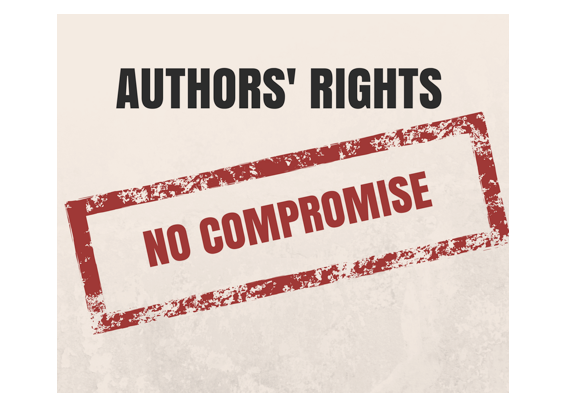The IFJ and EFJ call on European Parliament to protect Authors’ Rights

The International and European Federations of Journalists (IFJ and EFJ) today reiterated their support for the adoption of the Directive on Copyright in the Digital Single Market (DSM), calling on members of the European Parliament to vote on 12 September in favor of the proposal, as put forward by its Legal Affairs Committee (JURI).
Recognizing the crucial importance of authors’ rights, the media’s investment in quality contents and the need to establish fair practices in the online exploitation of news contents, the text, as proposed by the Legal Affairs Committee on 20 June, is ground-breaking.
“This long-awaited piece of legislation restores balance and diversity in an extremely important sector, now dominated by a small group of giant tech corporations,” said Anthony Bellanger, IFJ General Secretary. “Many of the opponents to the directive, who claim to be independent and to speak for the public, are funded by these tech giants. They say copyright only benefits big business, but the livelihoods of hundreds of thousands of journalists and millions of authors in Europe and beyond depend on our copyrights.”
“Copyright and authors’ rights have nothing to do with censorship,” added Ricardo Gutiérrez, EFJ General Secretary. “They are the time-tested ways to ensure that our societies can benefit from the work of dedicated professional authors who are independent because they can make a living from their work. If authors instead had to rely on sponsorship or patronage, their independence and ability to create and report would be crippled.”
The organisations say that none of the fears raised in this campaign are justified, noting in particular:
- That Article 11 is a necessary measure to prevent free-riding by Internet corporations on publications and authors who produce words and images for them. The International and European Federations of Journalists have adopted with European newspaper publishers’ organisations a joint position on Article 11 and wording for Recital 35 (available here), to ensure that the benefits deriving from the future publishers’ neighbouring right are shared fairly and proportionately between journalists and publishers.
- That the European Data Protection Supervisor found that the monitoring requirements in Article 13 are proportionate, the caution being their correct transposition by Member States. Licensing through collecting societies will provide authors with some compensation for the rampant unauthorised use and consequent devaluation of their work; and such licensing, rather than filtering, is the logical outcome of this Article.
- That the “transparency triangle” proposals in Articles 14, 15 and 16 provide a basis for authors and performers to receive the fair payment they need in order to continue to make high-quality contributions to culture and in the case of journalists, to Democracy.
- The proposal excludes hyperlinks from its scope and does not penalise readers who share articles.
In letters addressed to members of the European Parliament, the IFJ, the EFJ and their national affiliates urged MEPs to vote in favour of the entire JURI Committee report and in particular to safeguard its Chapter III, in defense of Culture and Democracy in Europe.
At the same time, the IFJ and the EFJ warn against the adoption of any legislation that would marginalize authors, in particular journalists and deprive them from a fair and proportionate share deriving from the neighboring right.
Without protection for authors’ rights, there would be no professional journalism.






